Tuesday Triage #54
- TUESDAY TRIAGE #54 by Vadim Drobinin
- On leisure times
- Things I enjoyed reading
- 1. Sucks to be him! by Simon Usborne
- 2. How to spot a good fake ID by Trevor Klee
- 3. Zip - How not to design a file format by greggman
- 4. I just learned I only have months to live. This is what I want to say by Jack Thomas
- 5. Safari 15 isn’t bad, just misunderstood by Jeff Kirvin
- 6. The Lazy Susan, the Classic Centerpiece of Chinese Restaurants, Is Neither Classic nor Chinese by @readwriteradio
- 7. How to breathe by Martin Petrus
- 8. How do Chrome extensions impact browser performance? by @mattzeunert
- 9. Penniless: why a Victoria man has gone two decades without money by Tori Marlan
- 10. Glued To Your Phone? by Mayowa Aina
- Things I didn't know last Tuesday
- 1. Socarrat
- 2. Volkswagen Currywurst
- 3. Peter the Great’s Beard Tax tokens
- 4. Jazz on bones
- 5. Capitol Hill's mystery soda machine
- 6. What did the ancient Romans eat?
- 7. Tomato fruits send electrical warnings to the rest of the plant when attacked by insects
- 8. Japanese typewriters
- 9. Chinese language does not have an alphabet
- 10. Waterproof Walkman
- Book of the week
- Thank you and see you in a week!
TUESDAY TRIAGE #54
by Vadim Drobinin ¶
Your weekly crème de la crème of the Internet is here!
27.07.2021 (read in browser)
On leisure times ¶
As you might have already guessed, my leisure time these days (or decades for that matter) mostly revolves around exploring, whether it is books, food, or places.
This week we took my sister for a quick trip to the seaside, and also introduced to feast that is a proper full English breakfast (although this one is sadly missing a slice of black pudding):
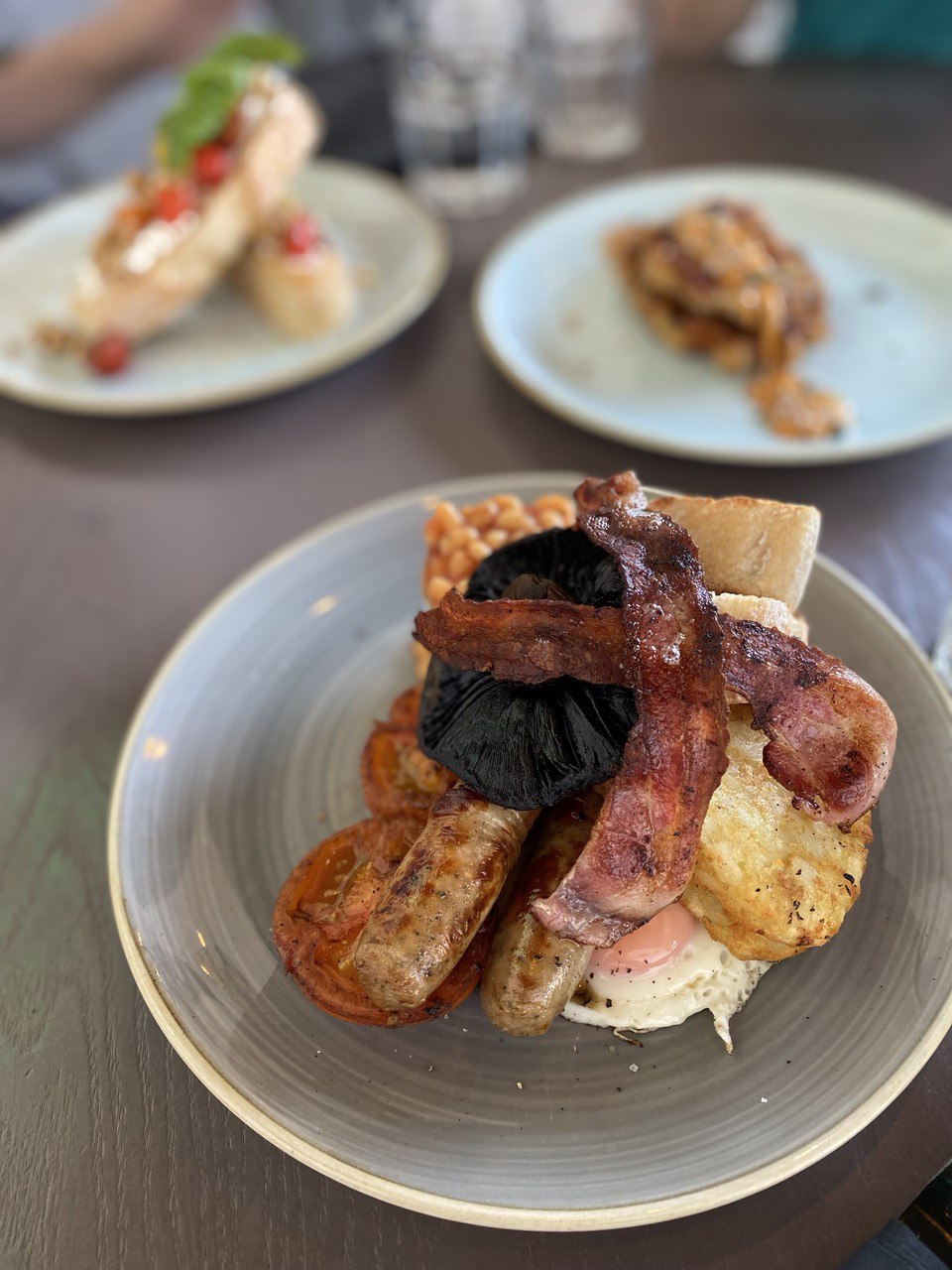
The seaside was as lovely as pretty much anywhere in the UK, and given that we went there in the middle of a week, it was mostly undisturbed by people. Here is some mussels from a Dutch track on the beach. Mussels are actually one of my least favourite dishes, as I can't bother with taking them out of shells, and usually don't find them worthy of my cooking time, but this ones were decent (although the sauce was more of a soup and could use some reduction time):
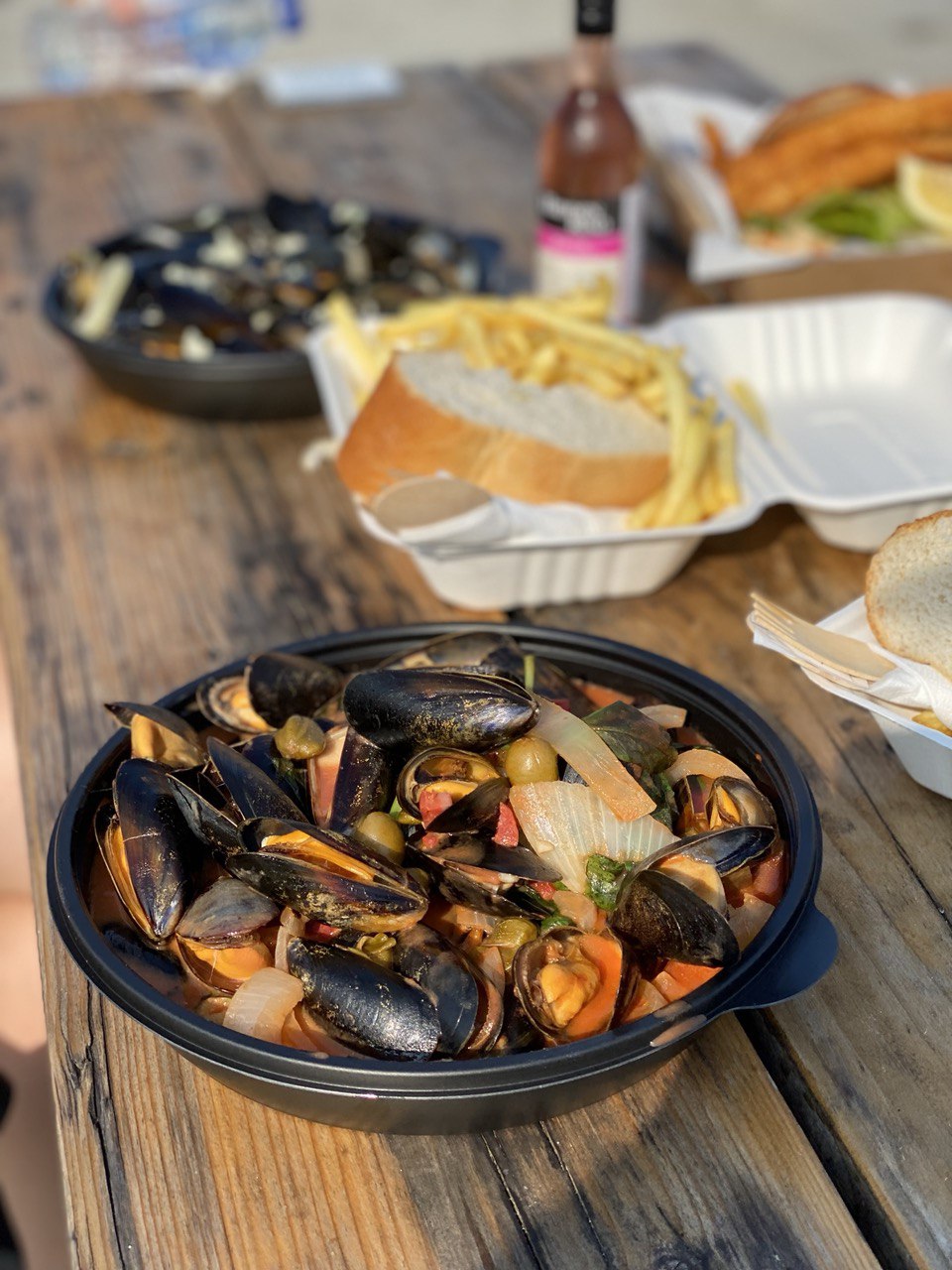
So once back I made something simpler, namely a bunch of various hotdogs:
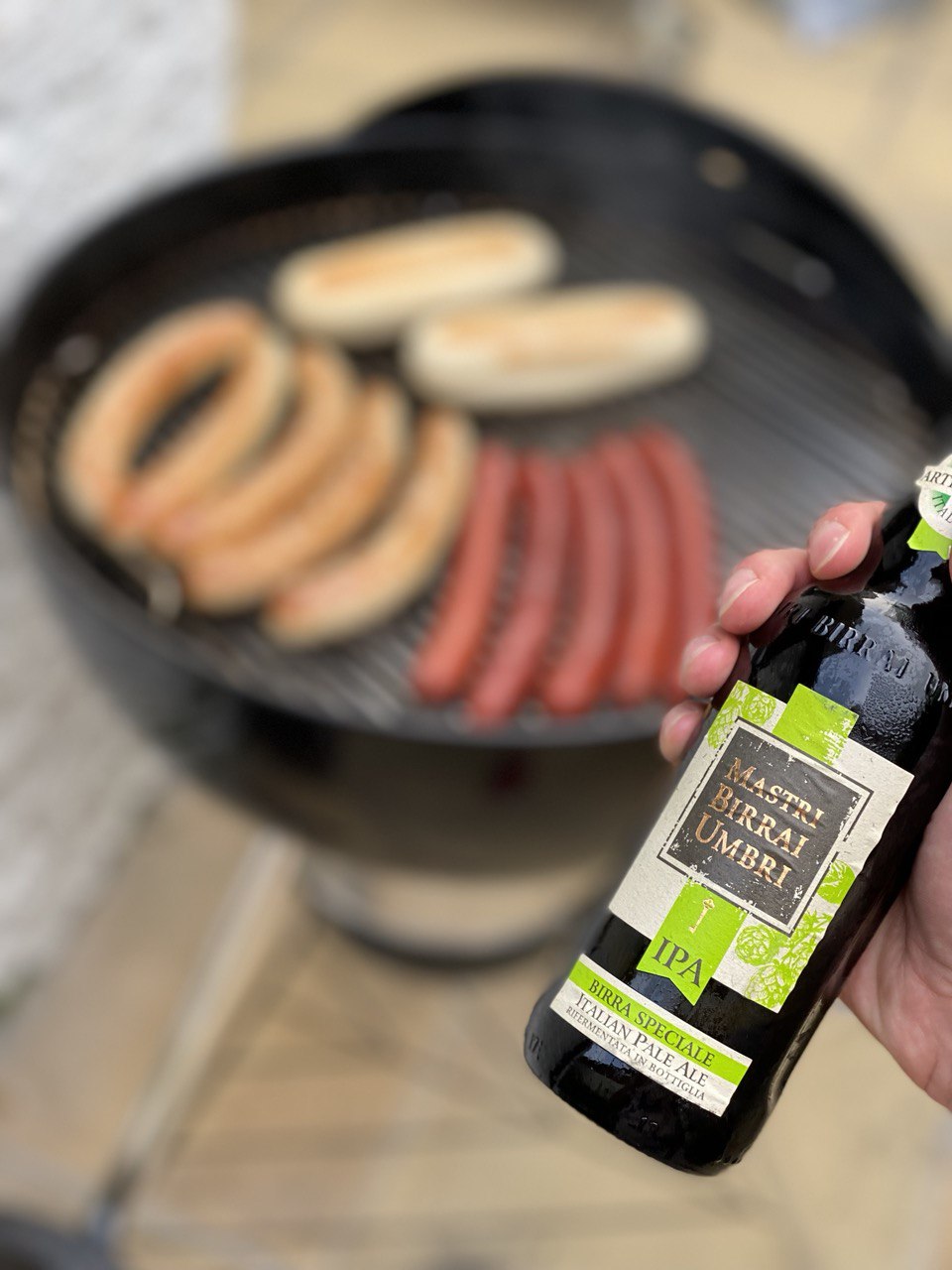
Also tried to do the Heston-style onions but it got too wet to be perfect. Next time!
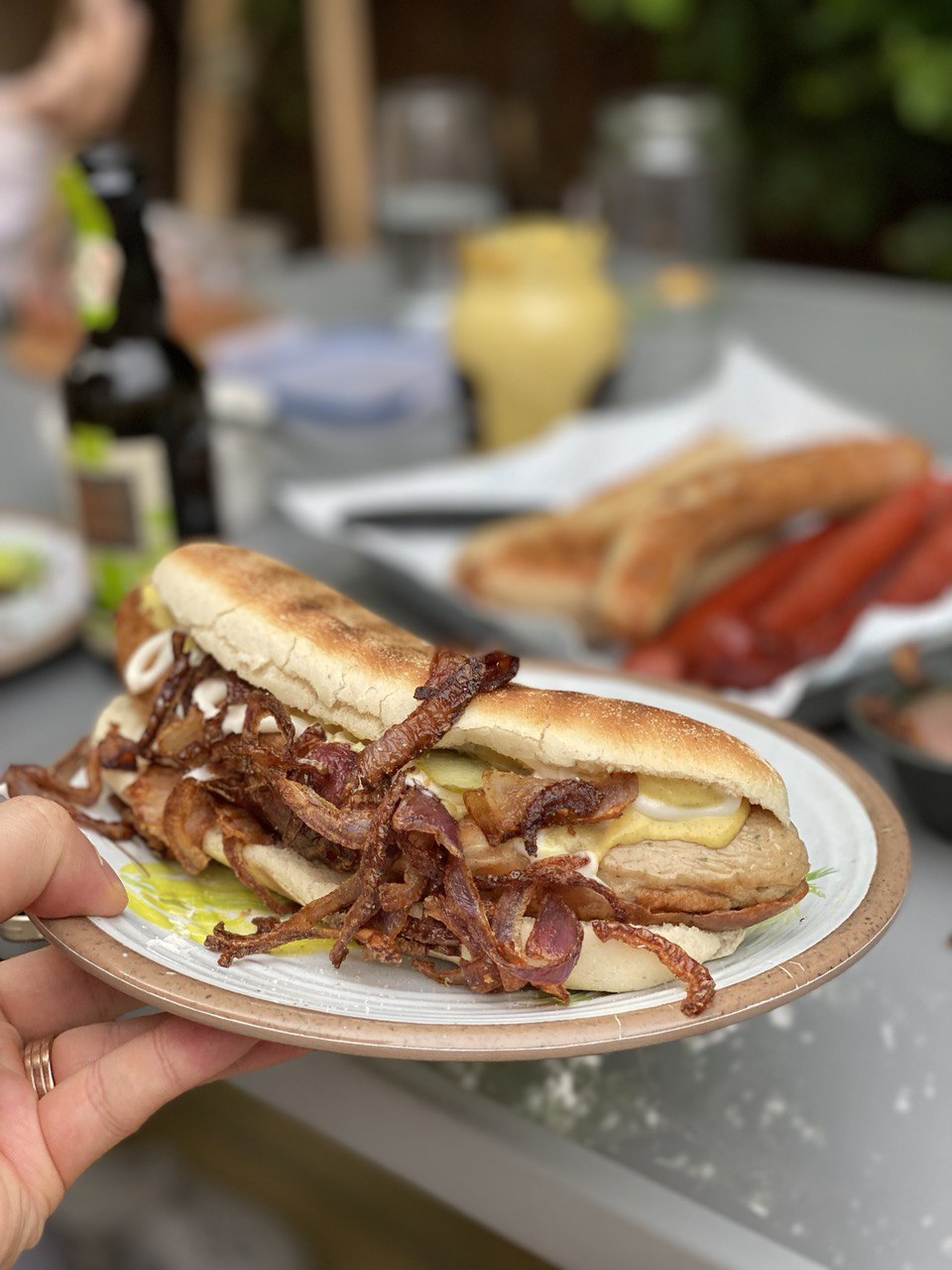
And then there was this idea I had for quite a while (ever since we tried something similar in a restaurant), so I made a matcha mousse:
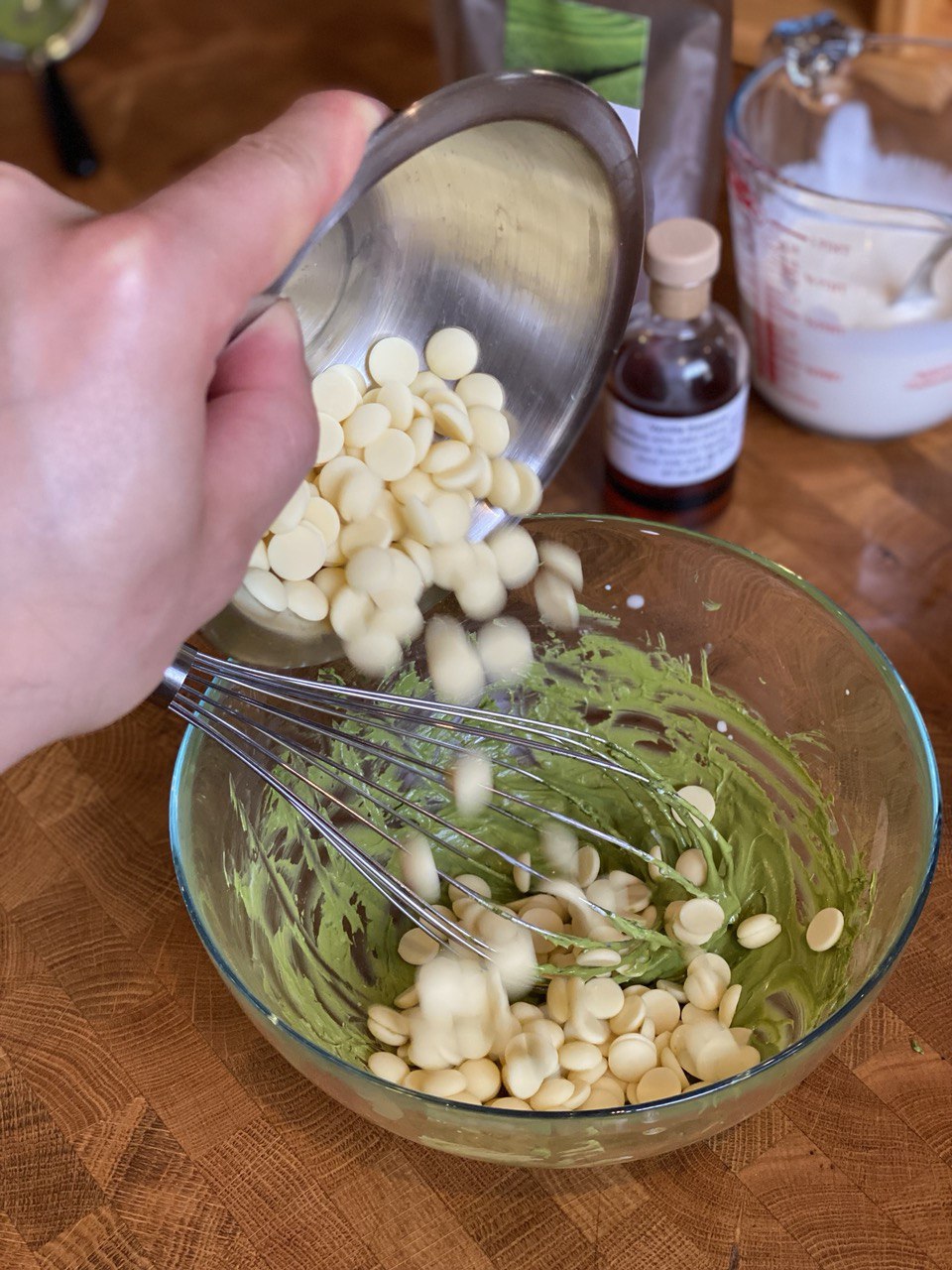
Turned sugar and butter into toffee, and blended it to bake in rings:
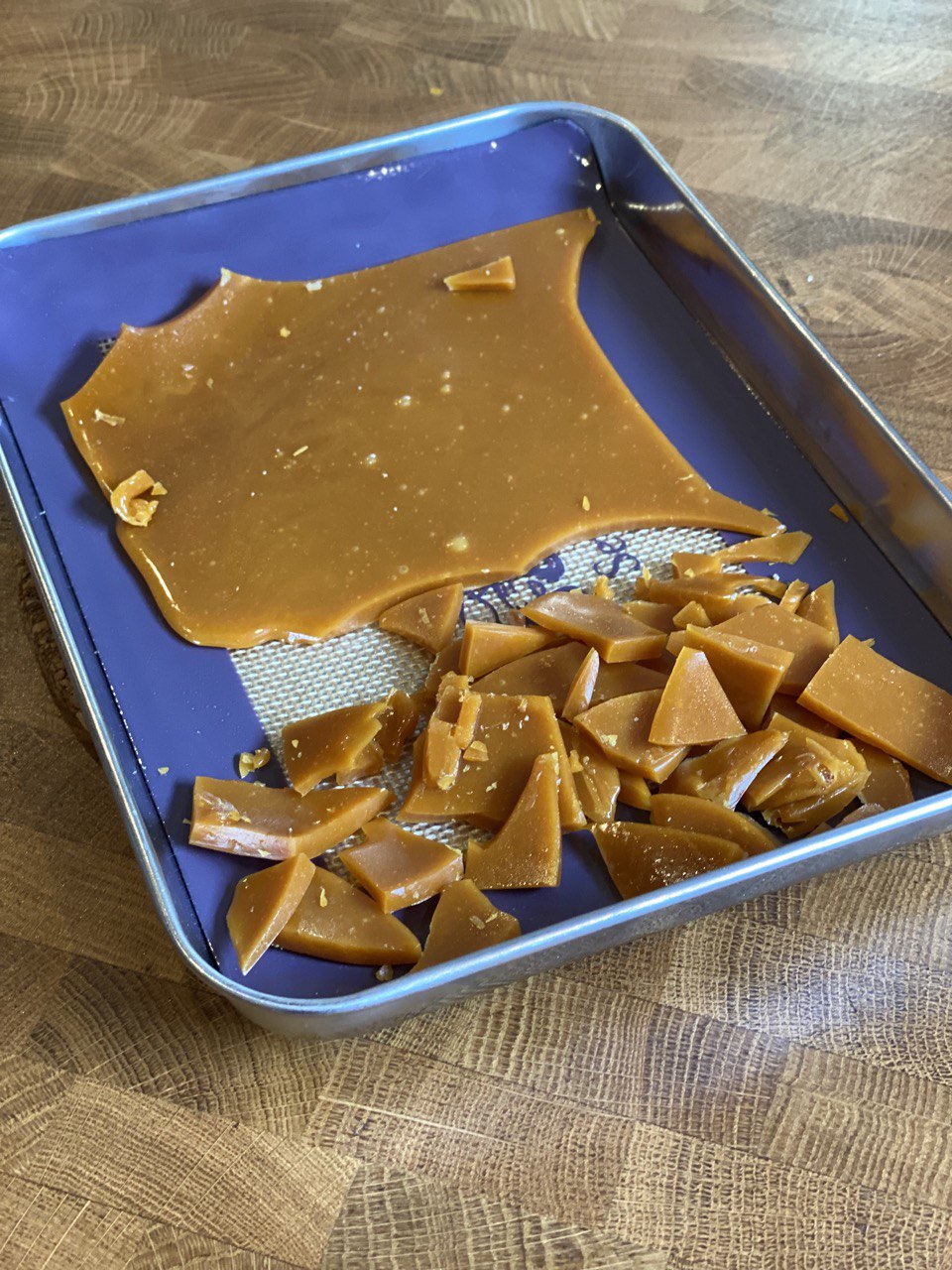
And then plated together with some strawberry compote, pink peppercorns, homemade fior di latte gelato, and mint:
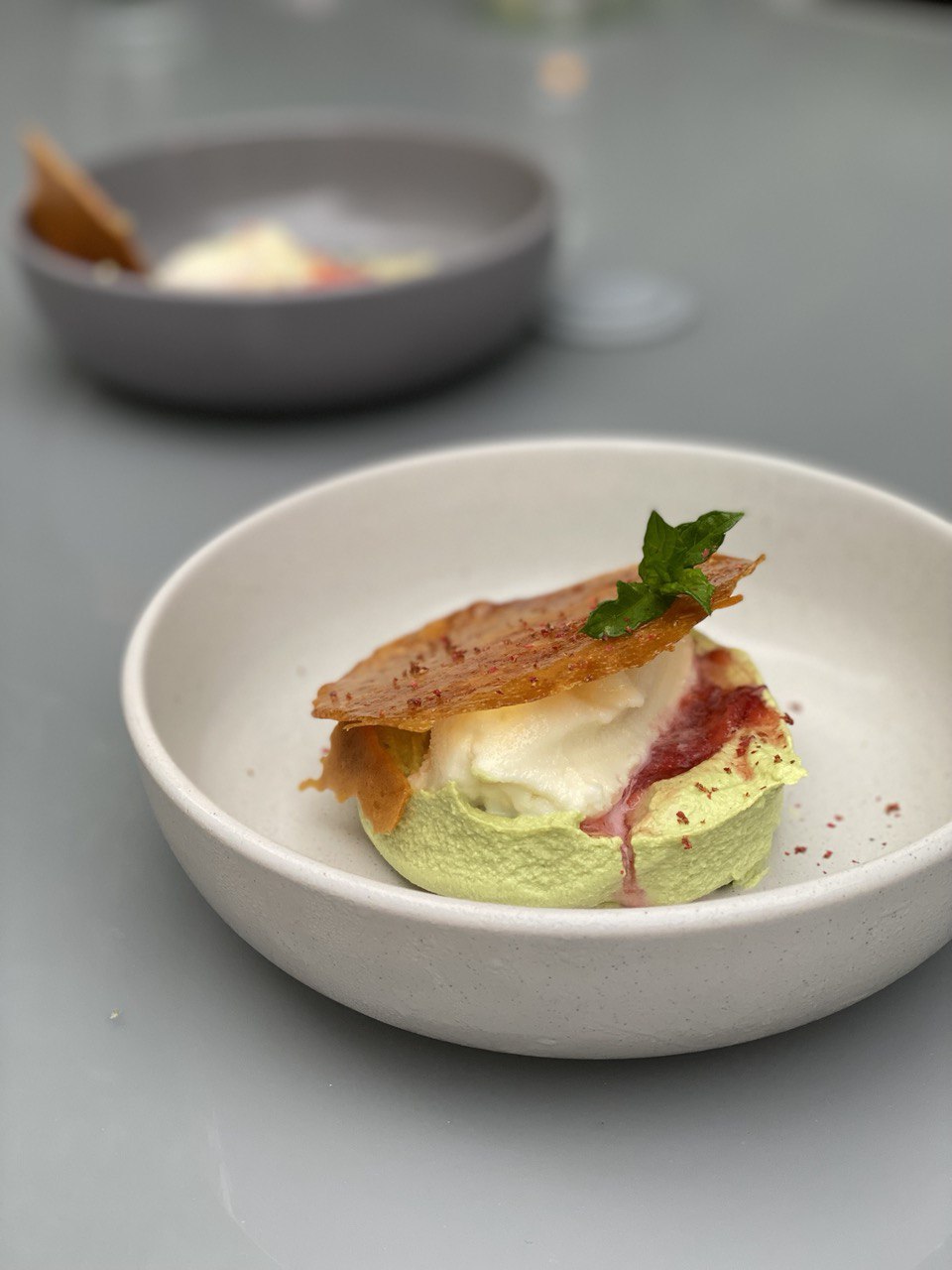
And to wrap it up, Sasha baked feta cheese in filo pastry with sesame seeds and honey:
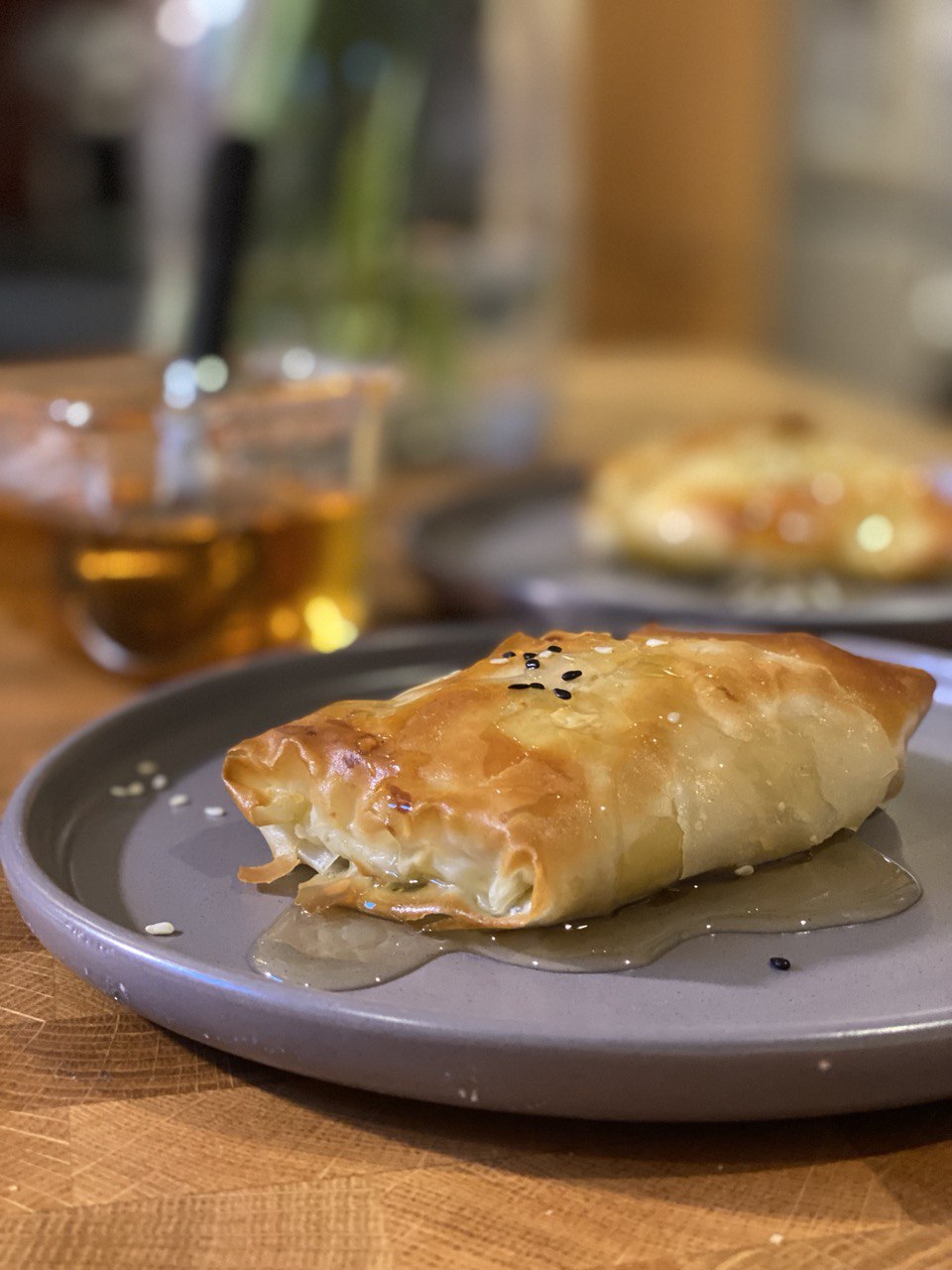
Hopefully now as it gets colder we will have less fear turning stovetops, so stay tuned.
Things I enjoyed reading ¶
1. Sucks to be him! by Simon Usborne ¶
For quite some time I thought that is a joke, but in fact Henry the vacuum cleaner is probably one of the most recognizable gadgets produced here. And also an accidental design icon:
Henry has become an accidental icon of British design and manufacturing. Equally at home in the hands of princes and plumbers (Charles and Diana received one of the first models as a wedding present in 1981), he is also an under-stairs stalwart in millions of ordinary homes.
Jokes aside, so far as I seen one pretty much everywhere, from fancy hotels to secured building receptions to recycling points, and that must mean something.
2. How to spot a good fake ID by Trevor Klee ¶
Probably not something I could use on a daily basis, but also a good selection of things I didn't know about the way (at least US) driving licenses are designed.
Fake IDs are better than ever before, driven largely the symbiotic needs of 19 year olds to drink in bars and American cities to fine bars for underage drinking. This is likely problematic, because it also means that non-underage drinking criminals also have access to incredibly high quality fake IDs.
But, these fake IDs are not perfect. Even if you’re unfamiliar with the look of an individual state ID or national passport, you can still spot a fake one. You just have to look closely.
Here my provisional driving license is exclusively reserved for proving to cashiers that I am worthy enough to be sold a bottle of gin, and yet lately they mostly gave up on that ritual. Not being able to buy a bottle of wine at 19 yo in the States is a topic for a separate discussion: frankly I am surprised there are no riots of angry teens yet, given that guns are sold at Walmarts with less restrictions then booze.
3. Zip - How not to design a file format by greggman ¶
This is an exciting introduction into the way zip as a format works, but also a rant about multiple ways it could have been improved.
Unfortunately I feel like pkware doesn't want to be clear here. Their POV seems to be that zip is an ambiguous format. If you want to read by scanning from the front then just don't try to read files you can't read that way. They're still valid zip files and but the fact that you can't read them is irrelevant. It's just your choice to fail to support those.
It's always fascinating to learn about things you didn't even think about, and to me archiving algorithms always felt somewhat boring in that sense: once there is an equation to compress something, it is just about an execution. As always with software, this is actually where the interesting part starts: building a format requires way more than just a successful way to reduce something in size.
4. I just learned I only have months to live. This is what I want to say by Jack Thomas ¶
This is not the first essay on the subject I bring up, but probably the most touching. A man learns about an imminent death, and yet chooses to talk about it outloud and with a certain bit of humour.
The same with Julia Child. One doesn’t “bump” into Julia, exactly, but if I see her at a local restaurant, if they have local restaurants, I’ll find a way to mention that I’m the guy who wrote in the Globe that we should run away together, that I would peel potatoes, cut onions, and do dishes if only I could put my feet under her table forever. I’ll recite for Julia the response she wrote to me in a letter: “How flattering to be invited to run away with a younger man. However, my husband has a black belt in karate and so, in the interest of your continued good health, if nothing else, I must decline.”
There is something comforting in reading about memories, not regrats. That is a mark of a life lived to the fullest.
5. Safari 15 isn’t bad, just misunderstood by Jeff Kirvin ¶
I didn't have a chance to play with iOS 15 beta yet, but the new Safari UI was one of the most memorable moments during the WWDC Keynote this year, so I wasn't really surprised reading through folks' complaints about something that different.
Here is an opposite opinion, and the one I lean towards too:
So what do we have? A new browser UI that shows as much of the page as possible when the user is interacting with the page, and surfaces UI chrome only when the user indicates that they need to interact with the UI. Adaptive and contextual. This, Federico, is why Apple declared war on buttons. You should only see a button when you need it. The rest of the time you should see as much of your content as possible.
There were many things Apple and alike re-invented over the last few decades, and complaining about something different doesn't make it necessarily bad. I respect the company for their vision, not for being flexible or listening to customers.
One thing Steve did right back then was not lettings people to temper with insides of their computers by locking it in a box: in the end, Apple engineers knew better. I think Safari plays a similar role of a box now, and we are yet to learn about the actual changes probably very soon.
6. The Lazy Susan, the Classic Centerpiece of Chinese Restaurants, Is Neither Classic nor Chinese by @readwriteradio ¶
The name was a mistery to me, but the concept was very familiar: apparently these tables came from Europe, not China, and were a tool to get rid of paid workforce. I don't list it as something I learn this week for a mere reason of encouraging you to rid through the whole post: it's a great story on its own, even if you knew where it is coming from.
Let's take a minute to get the name straight. Technically, the “Lazy Susan revolving table” isn't a table at all. Today, it describes a spinning platter that rests on the tabletop. Back in the early-1900s, however, “Lazy Susan”—previously known as a “dumb-waiter”—described not only revolving tabletops, but also revolving tables, as well as elevators that carried plates and food. All three devices were used in Europe and America to save domestic labor during meals. Basically, the idea was to buy a “dumb-waiter” so you could layoff your real waiter.
And yet I am still really confused by the name.
7. How to breathe by Martin Petrus ¶
Since I tried to breathe properly for the last time, the theory behind it left narrow circles of yoga followers and got its own americanized name. Still works wonders though:
One of the most significant things that you can do for your mental processes is to get the right amount of oxygen into your brain and vital organs. The rate of your breath holds the key to that. What you’re looking for is slow and gentle breathing. When our breathing is fast and shallow, we’re mostly moving the air in the ‘dead space’, which is the volume of air that doesn’t take part in the gas exchange (it isn’t utilised by the body). This is why we want slow and deep breathing, which gives us a much better gas exchange.
I wonder if Apple Watch could eventually pair their Breath exercise app with blood oxygen sensor and actually guide people through the process. That'd be a great reason to upgrade.
8. How do Chrome extensions impact browser performance? by @mattzeunert ¶
That might sounds obvious, but the more things you have running on a computer, the slower it tends to get. It actually applies to browser extensions too, and that's where I can't really decide between my privacy or convenience needs and the speed I am used to.
Coupon code finder Honey also significantly impacts site speed on ecommerce websites, adding 825 ms of CPU processing time.
Finally, when running the tests on the Toyota homepage, we can see that Norton Password increases CPU activity the most, adding about 1 second of CPU time.
What could help is disabling all non-privacy extensions by default, and just turn them on from the panel whenever one is needed. It'd work in case of Honey, but probably wouldn't for something more obscure. I solved the majority of problems by moving most of my ad blockers to the network layer with a pi-hole.
9. Penniless: why a Victoria man has gone two decades without money by Tori Marlan ¶
Not a new narrative, but probably the most well-detailed one: a man decides that money is evil, and after proclaiming himself a messiah goes on living without monetary compensation. Also destroys whatever money he comes across. How cool is that?
But, motivated by reasons more pure than stress relief, Johnston ditched money almost two decades ago, and he says there’s no going back.
His last purchases—beer, cigarettes, pot—occurred 18 years ago, he says, on his 31st birthday. He claims he hasn’t spent any money since. It’s true, his friends have told me. No money at all.
It seems to work quite well actually, unless you try to travel (and being locked in America, traveling is pretty much locked to the continent).
10. Glued To Your Phone? by Mayowa Aina ¶
Another approach to ditching social networks one by one, this time through acceptance and observation and consciousness.
If you're someone, like me, who spends a lot of time on the internet, taking some time to spruce up your digital space — the same way you would any part of your home — can be helpful.
At least once a year, I go through my 'following' list on Twitter, Instagram and TikTok, and clean it out. I ask myself: What accounts are bringing me joy, helping me learn, challenging me or otherwise bringing value to my life? Which ones aren't?
I am long overdue on cleaning my social contacts but it used to work great in the past. However, I never actually managed to remove the ones that consume most of my social networks time (for that sole reason).
Things I didn't know last Tuesday ¶
1. Socarrat ¶
Something I wish I knew a few years ago:
Finding paella in Barcelona is no more difficult than walking down the street. That being said, not all paella is created (or should I say, cooked) equally. In fact, most paella you encounter in Barcelona is geared towards tourists (read: under or overcooked rice, no saffron — hello yellow dye number 2; if the paella is lacking the subtle aroma of saffron, then you have a fake) and forgettable. One Barcelona native I chatted with compared the paella on Barcelona’s La Rambla to a TV dinner. A few things to keep in mind when seeking quality paella: If you go to a restaurant and mention the word socarrat and the staff look at you quizzically and/or inform you that they bake their paella in the oven, turn around and walk out the door. There is better paella to be found.
Apparently every paella needs a crust.
2. Volkswagen Currywurst ¶
Who'd think buying a German car lands you with a bag of free sausages? I am actually not that surprised.
Currywurst has been branded as an official “Volkswagen Original Part,” being designated with the number 199 398 500 A. There were 6.81 million of them manufactured in 2018; the automaker makes more sausages than cars. VW also produces a special ketchup and line of cutlery specifically made to accompany the currywurst.
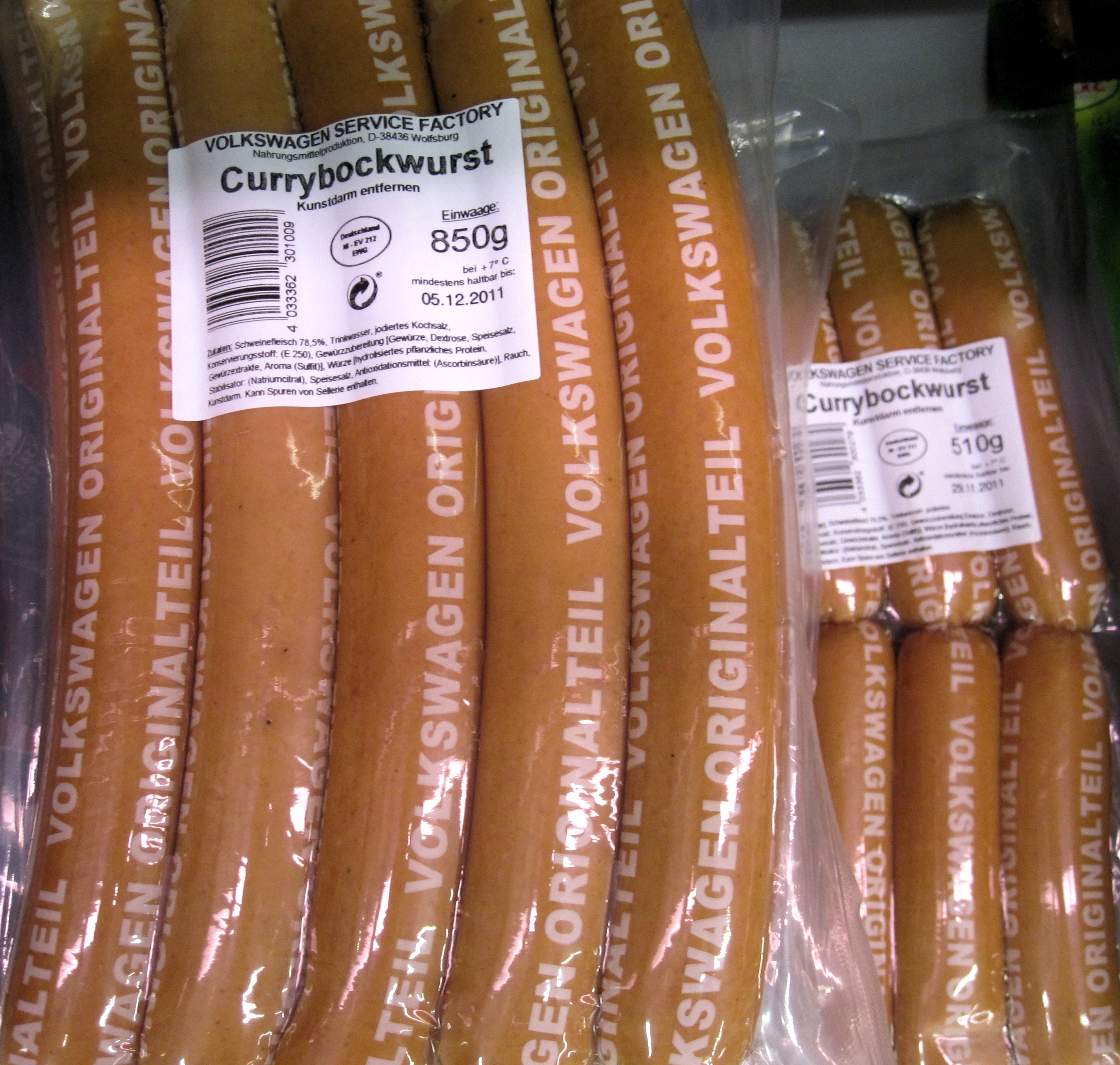
I have to say, if I ever buy a car here is the company I will consider the first.
3. Peter the Great’s Beard Tax tokens ¶
A disclaimer: I knew about the tax since early lessons at primary school. Somehow teachers are very proud of the fact, and bring it up pretty much straightaway: here are the pyramids, here is Rome, and here is Peter the Great cutting out beards. However, I never seen the tokens themselves. And they look really cool!
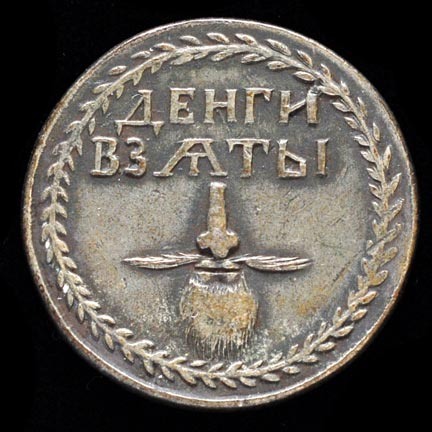
It served as proof that the bearer had paid his yearly beard tax—a few kopecks for peasants, a hundred rubles or more for nobles or military officials.
You can get one on Ebay, so I am almost convinced that could be the only way forward.
4. Jazz on bones ¶
And another disclaimer: I grew up very well acquinted with the phraze "jazz on bones". I also seen recordings made from X-ray films at home. I never thought of a link between the two though, and now I am also aware that it didn't exist outside Eastern Europe, so folks here completely missed out on the whole concept!
Ribs, also known as music on ribs, jazz on bones, bones or bone music are improvised gramophone recordings made from X-ray films. Mostly made through the 1950s and 1960s, ribs were a black market method of smuggling in and distributing music that was banned from broadcast in the Soviet Union.

The only issue is that the films survive 10-15 playings at best, so not that convenient if you have a choice.
5. Capitol Hill's mystery soda machine ¶
Imagine a soda machine in the middle of a city, that either gives you a random can that is not produced for the last few decades, or silently eats your money.
A drink could be chosen using one of the "? mystery ?" buttons and the dispensed drinks were rare cans that were either ordinarily unavailable in the United States or have not been in circulation since the 1980s, such as Mountain Dew White Out, a raspberry-flavored Nestea Brisk, a Hawaiian Punch, and a Grape Fanta, with other rumored drinks including Vanilla Cokes, Black Cherry Frescas, and Sunkist Cherry Limeade. The locksmith in front of whose business the machine stood claims to have no knowledge of who operated it.
This is such a great idea; something I can easily imagine doing myself just to mess up with people. So sad it doesn't exist for the last few years.
6. What did the ancient Romans eat? ¶
Some people just love taking things to an extreme, and I can't really blame them.
One example would be to recreate things eaten in the old world from scratch:
Magnanimi started testing recipes and had his first success with pullum oxizomum, a chicken entree. It is made with leeks and colatura di alici di Cetara, a condiment from the Amalfi Coast made from fermented anchovies that is the perfect substitute for garum. Some Japanese diners especially enjoyed it, and that led to him being featured on documentaries in Japan.
Also I can't ignore the mention of a garum. Seems like there is another thing I can explore for the extra-umami kick, without limiting myself to autolysis.
7. Tomato fruits send electrical warnings to the rest of the plant when attacked by insects ¶
Some episodes ago I was making fun of a scientologist that thought tomatoes can scream and feel pain. Here is a fresh research about almost the same idea (with a correction on them lacking a nervous system hence not being able to feel pain anyway).
To test the hypothesis that fruits communicate by electrical signals, Niemeyer Reissig and her collaborators placed tomato plants in a Faraday’s cage with electrodes at the ends of the branches connecting the fruits to the plant. They then measured the electrical responses before, during and after the fruits had been attacked by Helicoverpa armigera caterpillars for 24 hours. The team also used machine learning to identify patterns in the signals.
There is also some anecdotal evidence that pinching off first green tomatoes from a plant improves yeild. One might argue that the plant gets afraid and tries to make up for it.
8. Japanese typewriters ¶
Despite having a soft spot for typewriters I never though of them being widespread in Japan, and indeed they weren't. However, there are a few models built there, and all of them are really complex, way more complex that the European counterparts.
One of the things that made the typewriter difficult to use was getting the strike lever force correct. If struck with even just regular force, characters such as decimal points or punctuation would pierce the ribbon and paper, becoming stuck in the rubber platen. On the other hand, very complex characters (such as 曇 or 驚) required striking with additional force to compensate for the large surface area of the typeface.
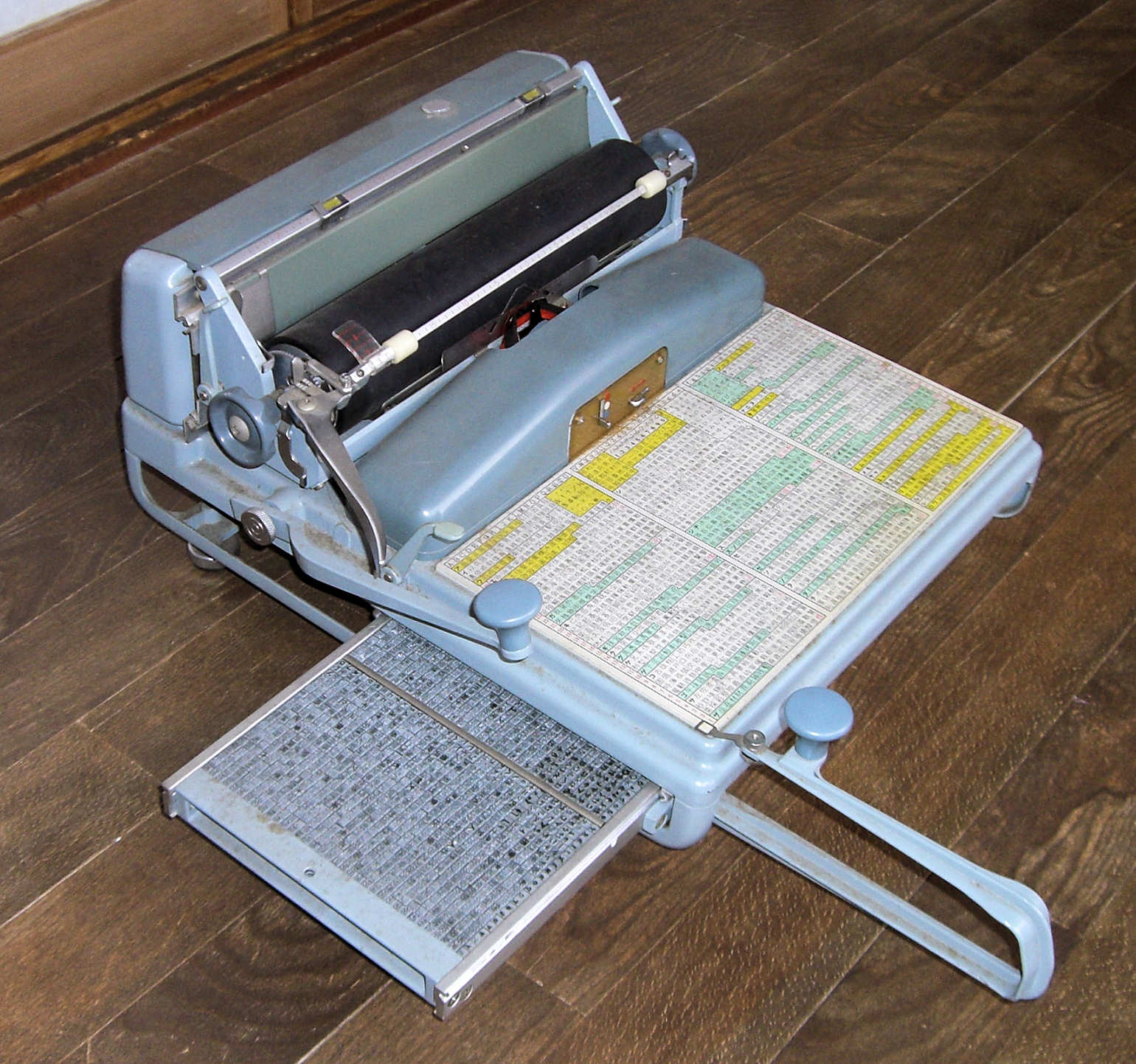
Couldn't find one on the local market, but maybe one day I will have enough space to fit it in and learn Japanese.
9. Chinese language does not have an alphabet ¶
Another thing that sounds obvious but in fact is not, and got really noticeable during Olympics in China a few years ago. During the opening ceremony teams should go in their alphabetic order, but there is no alphabet. What do you do? How to order countries without making them angry?
Even dictionaries don’t agree. Some dictionaries sort by the radical or root character. Others use the number of brushstrokes in the first character, then the second, and so on. Still others sort alphabetically by the pinyin, the standardized system that transcribes the sounds of the Chinese characters into Latin script. Most dictionaries use one method in their main body and then include an index or two that use another method, in the likely case that the reader is more comfortable with one of them.
Apparently the same applies to phone books or vocabularies.
10. Waterproof Walkman ¶
I love swimming but never had a chance to swim with headphones (or to research that market), so I've never seen an ad for this player.
If those ads showing swimmers rocking Sony's new Walkman haven't convinced you it's really waterproof, then get this: you can buy one packaged inside a full bottle of water.

I am not sure if the water was meant to be drinkable (given that they sell it in vending machines), but that's a cool way to explain your point to sceptical users. Next time someone claims iPhones are impossible to break, I demand them bundled with hammers.
Book of the week ¶
We picked up Caroline Eden's Black Sea from a charity shop – one of those British attractions, where you find things you never expected to exist, and yet instantly realise they worth their price. And boy oh boy, it didn't disappoint!
Growing up in Russia meant occasional summers at Black sea as well, so while the book takes a reader onto other shores, the food and atmosphere stays very familiar.
I'd hunt for rapana after overnight storms and never understand how adults could cook and eat them.
Or stock up on a spicy Korean carrot salad they sell in abundance from huge plastic baskets under the scorching July sun.
Or eat freshly baked khachapuri generously dressed in cheese, or chew on a string of a grape churchkhela lying next to a hot salted corn on the cob.
The author goes further and explores stories behind those dishes, people, and regions, all related to each other by a body of water in between – and yet so different at the same time:
Jerusalem, St Petersburg and Kolkata have in common a certain light, an almost celestial glow, an extra layer of luminosity, a brilliance permeated by the weight of history, environmental bearing and devoutness. Other cities, many more – Bukhara, Marrakech, Reykjavík – fall into the ‘atmosphere’ camp, because they have weight and heart. But while Odessa has, at times, both radiance and a certain aura, it also has a third quality: imaginative grip. That is, a particularly arresting pull that encourages a craving for something unknown. This can be most keenly felt in the city’s historic courtyards, or dvoriki. These communal spaces, more than a veranda but less than a terrace, are where the spirit of Odessa – the thing that feeds this ‘grip’ – hangs most heavily.
Out of all Black sea's surroundings, Odessa is probably the one I wish to visit the most, so hopefully now I can at least get prepared.
Thank you and see you in a week! ¶
If you have any questions, or want to suggest a link for the next newsletter, please drop me a message on Twitter or reply to this email.
Cheers! 🍸